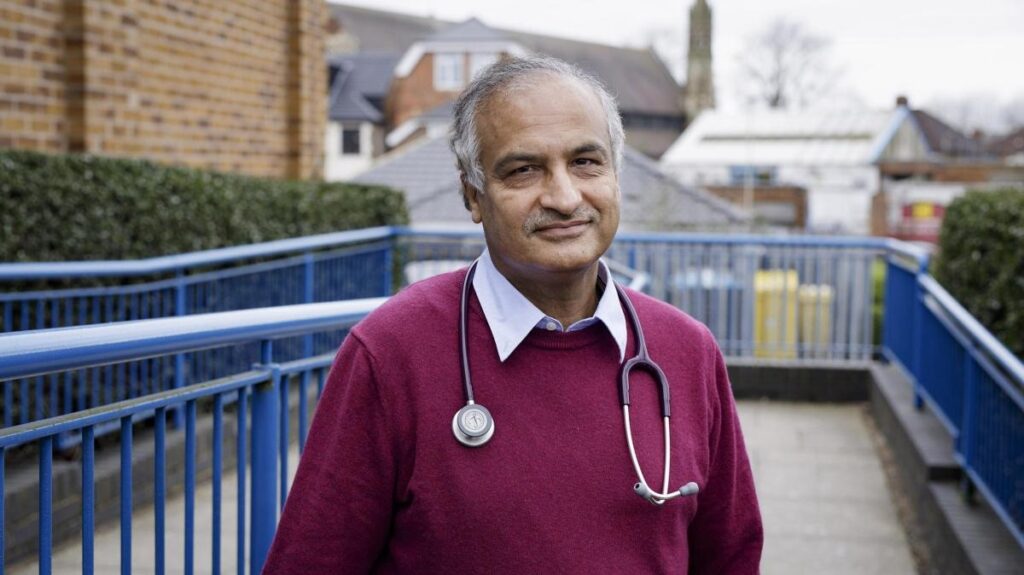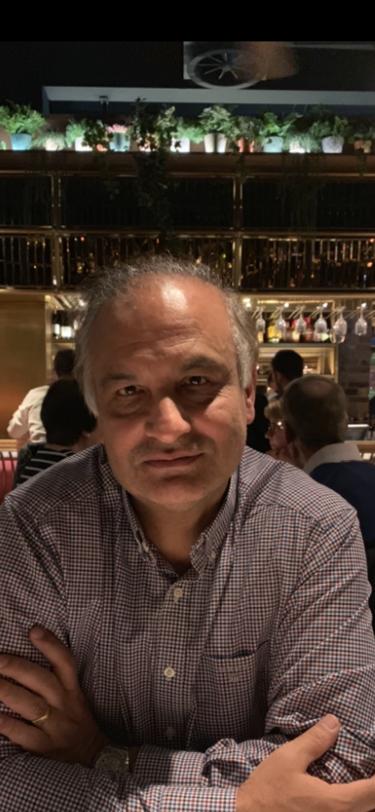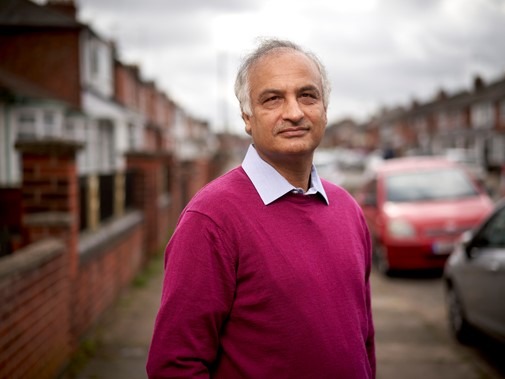Dr. Azhar Farooqi belongs to the generation of Pakistan where a family’s ambition for their child, who does well at school, is to become a doctor. To illustrate, it is a Pakistani, and even an Asian, trend to see their child grow into a doctor regardless of their interest, passion, personality and skills. Hence, he became part of same ideology.
Medicine is a great career but it is not for everybody. If your parents and family are pushing you into it my advice would be; only do it if you have passion for it.
Dr. Farooqi
Medicine is a vast canvas. The options are endless. The path and destiny depend upon the medical students. Every student aims differently, therefore, attains a different perspective of struggle, growth and success.
“Medicine is an attractive field. You work for people. There are so many options in medicine. You can go into clinical specialisations, leadership, teaching, and research. If people are not sure but they like the idea of medicine, they should not be afraid to try it because it branches into so many different areas. That being said, all subjects related to medicine such as biology always attracted me even as a child. Parents’ ambition and my passion was an open door for me.”
Dr. Farooqi
General Practitioners as Vaccination Influencers

Dr. Farooqi is a devoted general practitioner who believes in the power of the doctor-patient relationship. The significance of this relationship is evident when patients reach him out to obtain his opinion about vaccinations. Be it COVID-19 or any other vaccine, populations around the world are concerned and worried about the efficacy and side effects. Pandemic has been an endless trauma for everyone one way or the other. Pandemic combined with the doubts and myths about vaccines created an undefined state of panic and terror. Dr. Farooqi finds it his responsibility to guide the patients for their health and well-being.
“As a general practitioner, we have a lot of influence on our patients. They look up to doctors and they expect a doctor to always do the best for them rather than politics and money. This is a really powerful relationship. I think we can make the most of this relationship. This is where vaccination comes in. People have doubts and worries about vaccination. As a general practitioner, you can explore their concerns and worries to reassure them. It is always better coming from a doctor rather than a politician, actor or television program. When I listened to my patients’ worries about vaccines I discussed them with patients and they believed me. They came forward for vaccination soon.”
Dr. Farooqi
Colleagues’ Buzz: Partners at Work
After decades of working as a general practitioner, Dr. Farooqi is still passionate about his work. His job is his responsibility but he tends to enjoy his work time with colleagues. The environment of healthcare centres is stressful. In such circumstances, colleagues turn out as partners in times of grief and glee.
Medicine is a fantastic job. I ensure variety in my work. I make sure about the objectives of my work. I always try to work closer to my colleagues because a lot of attraction in medicine is a team working. You get a lot of buzzes, feedback and positive vibes from colleagues. That is why, I think, it is important to work closely with colleagues. You should have an objective. Aim for something and when you are successful you should celebrate that success with your colleagues.
Dr. Farooqi
Compartmentalise Stress and Crises
Stress and crises are constants in a doctor’s life. They stay with them. The only trick is to manage. Whether you are a medical student or a specialist and researcher with years of experience, you are under stress for patient management, upcoming surgery, events at home or simply exhausted. Dr. Azhar Farooqi views the management of stress from a different perspective.
“As doctors, we are quite lucky. We develop a coping mechanism. We see so much illness and distress that we develop a way to compartmentalise. Learn to compartmentalise. Learn to understand that you can change what you can change. If you can’t change it you have to accept it. It is a good coping mechanism to understand the limitations in your personal and professional life. You can only do what you can do. If you can’t do it then you have to learn to let it go.”
Dr. Farooqi
Patient Care & Research Neglecting Ethnicities
Medical practice witnesses discrimination among ethnicities and minorities. From exclusive patient care to research, ethnicities come across ignorance. This is a bitter reality that patients experience especially in developed countries. Despite extensive awareness campaigns on a global level, we see improvement at an unsatisfactory pace.
“Recognition for different patient care for different ethnicities has been developing but still needs more development. A lot of research is based on the western population. The way we deliver medicine is pretty much a western model. So, we need to understand that people are different. There has been some improvement in recognizing patient care for different ethnicities but I still think there is a long way to go.”
Research-oriented Statistics & Population
He explains the impact of neglecting ethnicities in research and patient care by providing an example of diabetes. As a fact, we know diabetes is quite common. However, we don’t know the statistics on populations. This is how Dr. Azhar Farooqi breaks down the mathematics for us.
“You are probably aware that diabetes is much more common in some ethnic groups of Asia, the Middle East and South Europe. But, most of the research about diabetes includes the USA and North Europe where the populations do not have much diabetes. This tends to develop drugs that are better for these populations rather than the rest of the world. It is really important to include the right people in research projects. It is also important to deliver and practise medicine where we recognize the culture, language and beliefs of patients.”
Dr. Farooqi
Equation of Personal & Professional Life

Dr. Azhar Farooqi puts personal and professional life in the same equation. He believes the family’s time is as important as giving time to a career. Like many doctors, Dr. Azhar Farooqi also encourages a healthy balance between work and home. A doctor derives a sense of accomplishment from both. Neglecting one and expecting the other to fulfil you is not possible. You may win at one but you will lose the other.
“Life is much more than your career. So, the greatest moments of my life are not related to medicine. Family life is really very important. The most fulfilling moments were when my children were born and when they were successful. I do have some great moments in my career as well such as when I set up a new service, it worked effectively and received recognition. When I pick up a condition in a patient and their health improves it gives me a real buzz as well. In life, there are many fulfilling moments. You need that buzz every few months. I would tell people to take pleasure in small achievements. You don’t have to discover Penicillin or new therapy to find pleasure. Helping one patient can give you great buzz. Secondly, it should not always be work. Be with your family and friends.”
Dr. Azhar Farooqi stresses finding a passion. He urges young medical students to find a field that intrigues them. It may be clinical specialisation, research, and academics. Most importantly, he convinces medical students who regret choosing medicine to switch as soon as they realise the field is not for them. You become your career and it stays for the rest of your life. If medicine does not seem right for you, change your career.




